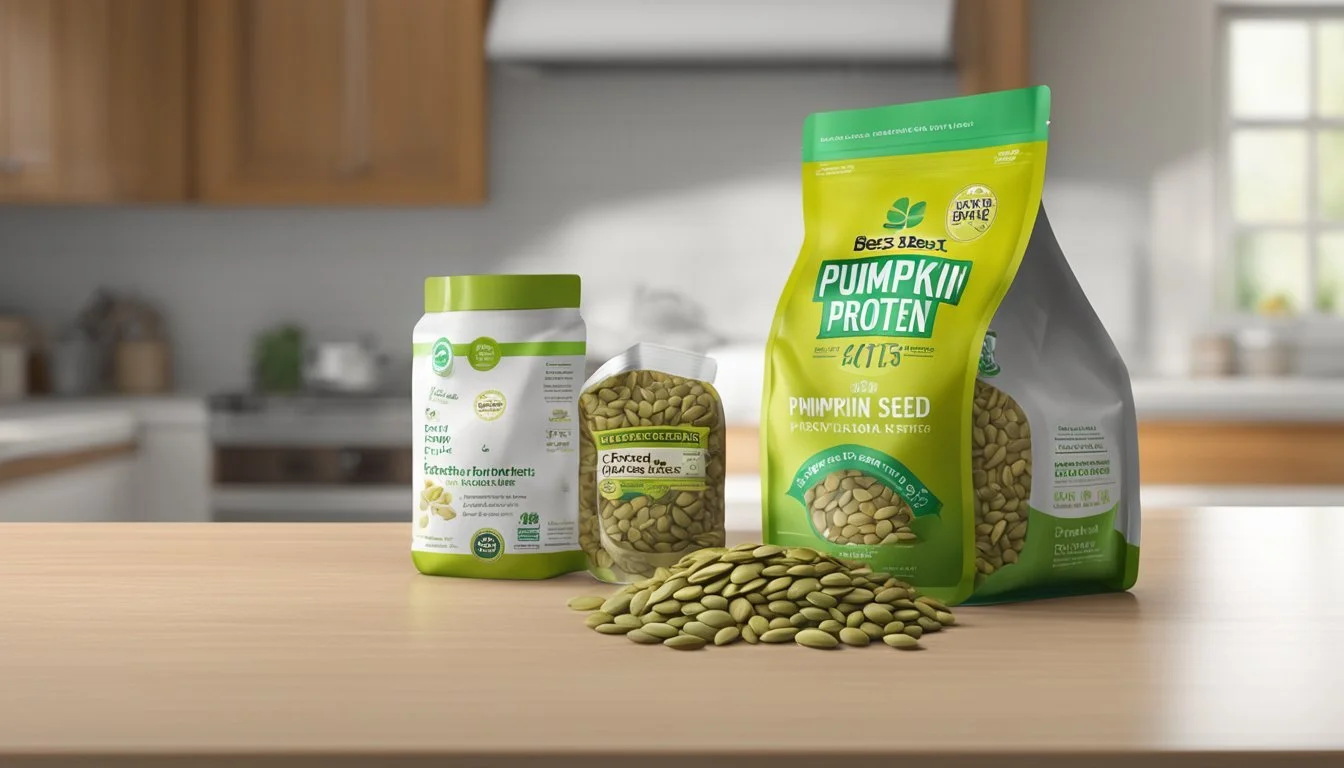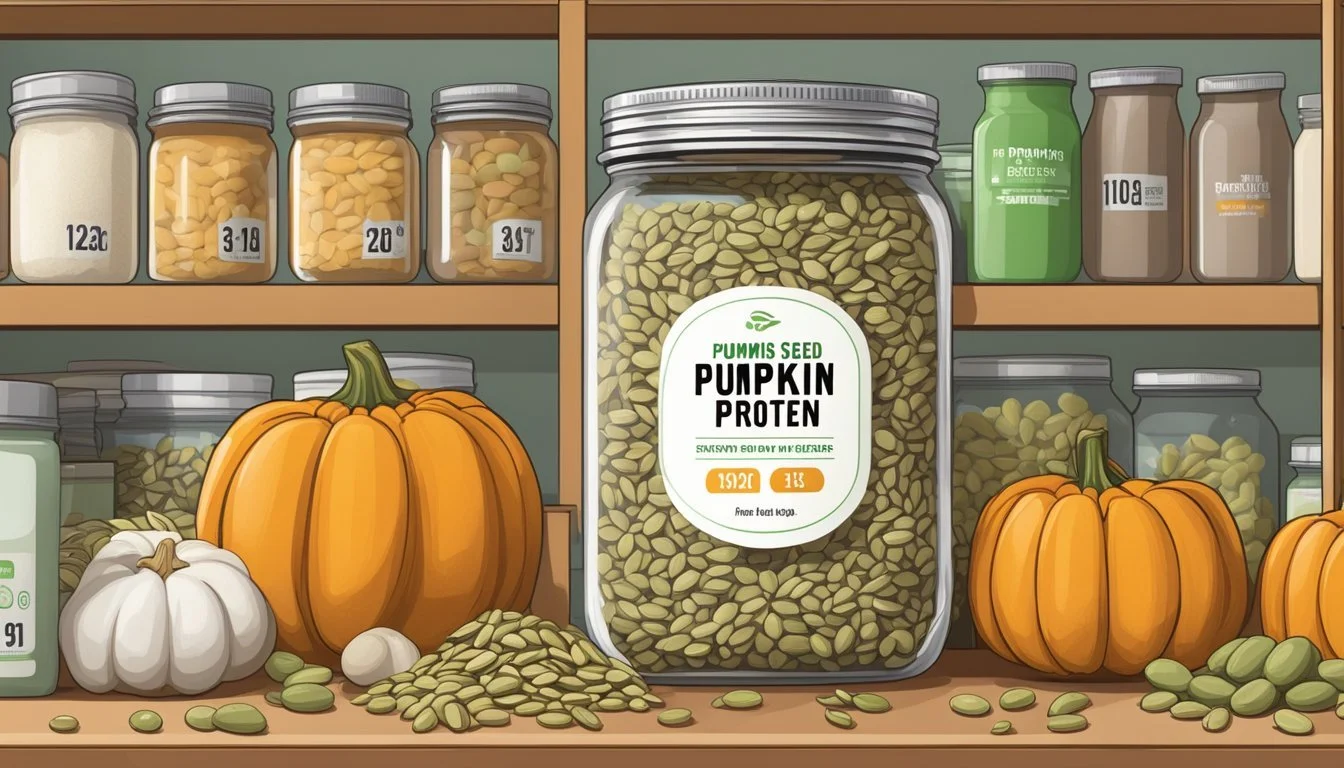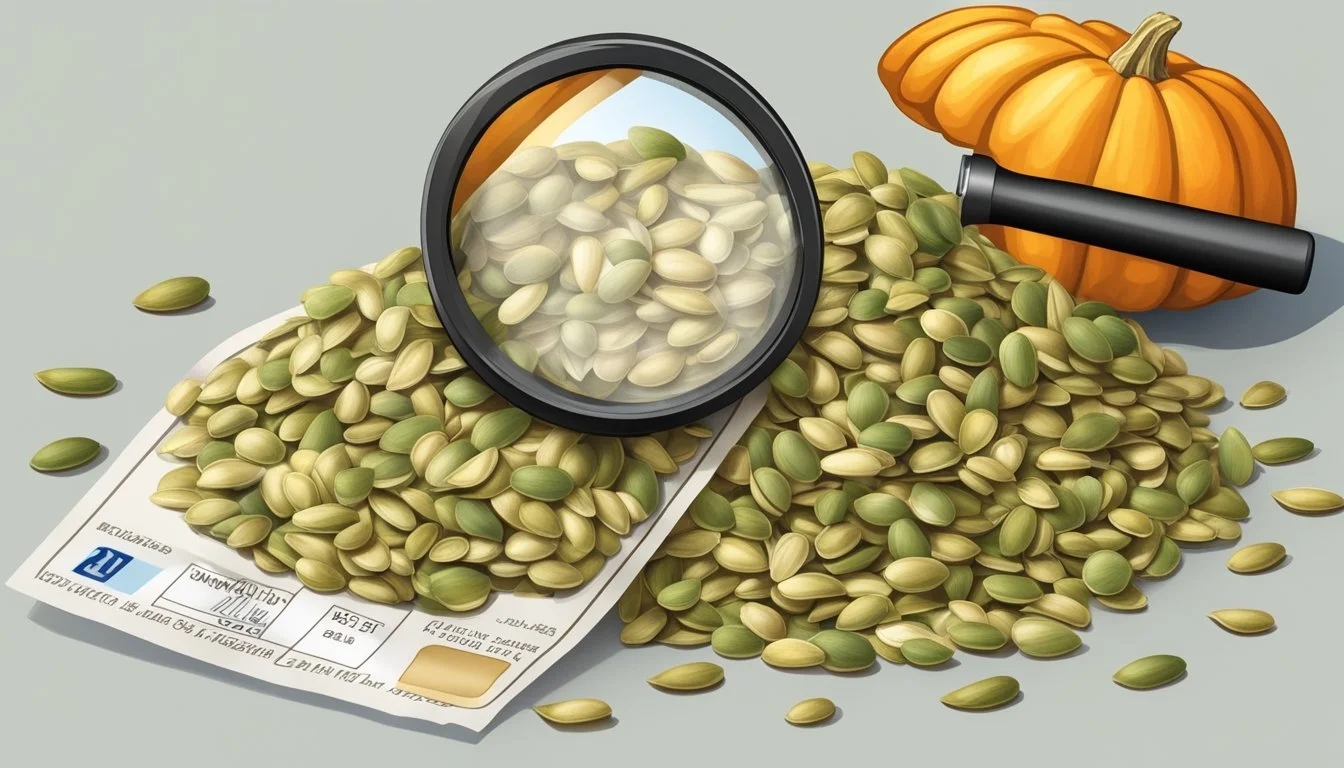Does Pumpkin Seed Protein Go Bad?
Shelf Life and Storage Tips
Pumpkin seeds, packed with protein and nutrients, are a delightful addition to a balanced diet. These tiny seeds, also known as pepitas, are rich in antioxidants, vitamins, minerals, and healthy fats. They offer numerous health benefits and can be incorporated into various meals for added crunch and nutrition.
Pumpkin seed protein can go bad if not stored properly. Exposure to air, heat, and moisture can degrade the quality of the seeds, leading to a loss of nutritional value and an unpleasant taste. It's essential to store them in an airtight container in a cool, dry place to maintain freshness.
Consuming rancid pumpkin seeds can result in a bitter flavor and may cause digestive discomfort. Checking the texture and smell before use can help ensure they are still good. Providing your body with high-quality protein is crucial, and keeping your pumpkin seeds fresh helps achieve this goal.
Understanding Pumpkin Seed Protein
Pumpkin seed protein is a plant-based source rich in essential nutrients, offering numerous health benefits. This section covers the nutritional profile, health benefits, and various forms in which pumpkin seeds can be consumed.
Nutritional Profile
Pumpkin seed protein is packed with essential nutrients. It provides not only protein but also vital minerals such as magnesium, zinc, and iron.
A standard serving of 30 grams of pumpkin seeds contains approximately 7 grams of protein, making it a potent source for vegetarians and vegans. These seeds also offer healthy fats, particularly omega-6 fatty acids, as well as a good amount of dietary fiber.
The profile is rounded out with vitamins such as vitamin E and B vitamins, making it a well-rounded nutritional option.
Health Benefits of Pumpkin Seed Protein
Pumpkin seed protein supports muscle growth and repair due to its high protein content. The amino acids present in pumpkin seeds help in the synthesis of proteins within the body.
The magnesium in pumpkin seeds plays a crucial role in muscle and nerve function. Zinc is important for immune health, while iron aids in the production of red blood cells.
The presence of fatty acids contributes to heart health, and the dietary fiber helps in maintaining a healthy digestive system. The myriad of vitamins and minerals ensures overall well-being.
Forms of Pumpkin Seed Consumption
Pumpkin seeds can be consumed in several forms, providing versatility in dietary inclusion. They can be eaten raw, which retains most of their nutritional value.
Roasted pumpkin seeds are a popular snack, offering a crunchy texture and a nutty flavor. They can also be sprouted, which may increase the bioavailability of some nutrients.
Another form is pumpkin seed protein powder, which can be added to smoothies, shakes, and recipes for a protein boost. Finally, pumpkin seeds can be blended into nut butter spreads, providing a creamy texture while maintaining all the beneficial properties of the seeds.
This ensures that pumpkin seed protein can be easily included in various meals and dietary plans.
Shelf Life and Storage
Proper storage of pumpkin seeds is crucial to maintaining their quality and prolonging their shelf life. Knowing how to store them and recognizing signs of spoilage ensures you get the most benefit from this nutritious snack.
Proper Storage Methods
Pumpkin seeds should be kept in an airtight container in a cool, dark place such as a pantry. Exposure to light and air can cause the seeds to degrade faster.
For extended shelf life, consider storing them in the refrigerator. Cold temperatures slow down oxidation, preserving the polyunsaturated fats and omega-3 fatty acids in the seeds. Roasted and shelled seeds have unique storage needs. Roasting removes moisture, making them less likely to spoil, but they should still be kept airtight.
Refrigeration is also advised for pumpkin seed oil to prevent it from becoming rancid due to its high fat content.
Signs of Spoilage
Fresh pumpkin seeds have a nutty flavor and firm texture. Signs they have gone bad include a rancid smell, which indicates the fats have oxidized, or a bitter taste.
Visual cues like mold or discoloration also signify spoilage. Be cautious if the seeds appear clumped together or sticky, as this could indicate moisture exposure.
If stored properly following the guidelines above, pumpkin seeds can remain fresh and safe to eat. Identifying these spoilage indicators helps ensure you consume only quality seeds.
Health Impact and Dietary Considerations
Pumpkin seeds offer numerous health benefits, including promoting heart health, improving digestion, aiding in sleep regulation, and contributing to cancer prevention efforts.
Heart Health and Blood Pressure
Pumpkin seeds are rich in antioxidants, magnesium, zinc, and fatty acids, which are crucial for maintaining heart health. The magnesium in pumpkin seeds helps regulate blood pressure, reducing the risk of hypertension. Omega-3 and omega-6 fatty acids found in these seeds also help reduce inflammation, potentially lowering the risk of cardiovascular diseases.
Digestive Benefits and Concerns
High in dietary fiber, pumpkin seeds aid digestion and promote gut health. Fiber helps regular bowel movements and prevents constipation. Additionally, the seeds contain compounds that can act as prebiotics, supporting the growth of beneficial gut bacteria. Despite the benefits, overconsumption can lead to digestive issues like gas or bloating due to their high fiber content.
Influence on Sleep and Stress
Pumpkin seeds contain tryptophan, an amino acid that helps produce serotonin and melatonin, which regulate sleep cycles. Zinc and magnesium also play roles in stress relief and better sleep quality. Regular consumption can contribute to a calm mind and restful sleep, making them a beneficial addition to the diet for those experiencing stress or sleep disorders.
Cancer Prevention and Prostate Health
Pumpkin seeds are noted for their potential to reduce the risk of certain cancers. They contain phytosterols and antioxidants, which may play roles in lowering cancer risk, particularly breast and prostate cancer. Compounds in pumpkin seeds are also studied for their efficacy in reducing symptoms of benign prostatic hyperplasia (BPH), supporting prostate health and overall male fertility.
Incorporating Pumpkin Seed Protein in Your Diet
Incorporating pumpkin seed protein into your diet can boost your protein intake, support muscle growth, and promote heart health. It can be used effectively as a snack, in cooking and baking, or in smoothies and shakes.
As a Snack or Supplement
Pumpkin seeds, or pepitas, make an excellent snack due to their high protein content and other nutrients, like healthy fats, magnesium, and zinc. They are great for snacking on their own or can be combined with other ingredients in homemade granola bars or trail mixes.
For added convenience, pumpkin seed protein powder can be used as a dietary supplement. It can be mixed with water, juice, or a smoothie for a quick protein boost. This makes it an ideal choice for athletes or those with busy schedules who need an on-the-go protein source.
Cooking and Baking
Pumpkin seed protein can be easily incorporated into cooking and baking, enhancing the nutritional profile of various recipes. Roasted pumpkin seeds can add a crunchy texture and a nutty flavor to salads, soups, and pestos.
For those with dietary restrictions, pumpkin seed protein is a versatile ingredient that can replace soy or other protein sources in bread, muffins, and other baked goods. It can also be used to make pumpkin seed butter, which is an excellent spread for toast or an ingredient in dips like hummus.
Smoothies and Shakes
One of the simplest ways to use pumpkin seed protein is by adding it to smoothies and shakes. It blends well with a variety of fruits, vegetables, and other ingredients, providing a nutritious and satisfying drink.
For a morning energy boost, blend pumpkin seed protein powder with fruits like bananas, berries, and a handful of greens. You can also add it to post-workout shakes to help with muscle recovery. This flexibility makes it easy to enjoy the benefits of pumpkin seed protein in a flavorful and nutritious way.
Comparative Nutrition of Pumpkin Seeds
Pumpkin seeds boast a rich nutritional profile, offering essential minerals, healthy fats, and high-quality protein. They also excel in fostering nutrient synergy when paired with other foods.
Pumpkin Seeds Versus Other Seeds
Pumpkin seeds easily stand out against other seeds. Zinc content in pumpkin seeds covers up to 92% of daily needs, which is significantly higher than in many other seeds. They also contain noteworthy amounts of iron, magnesium, and fiber.
When comparing macros, pumpkin seeds have around 8.5 grams of protein per ounce. This protein content is rivaled only by soy and hemp seeds. Moreover, their saturated fat content is relatively low at 3.67 grams per serving. These seeds provide both omega-3 and omega-6 fatty acids, supporting cardiovascular health.
Nutrient Synergy in Meals
In meals, pumpkin seeds enhance nutrient absorption and balance. They offer potassium, phytoestrogens, and selenium, contributing to overall well-being. When consumed with greens and grains, the tryptophan in pumpkin seeds can aid in serotonin production, improving mood and sleep.
Including these seeds in a diverse diet can support reproductive health and sperm quality due to their high levels of zinc and magnesium. Additionally, their rich calcium and fiber content makes them ideal for promoting bone health and digestive function.
Combining pumpkin seeds with fruits or vegetables loaded with vitamin C can boost iron absorption, overcoming issues related to its plant-based forms. Thus, incorporating them into balanced, nutrient-dense meals is highly beneficial.
Potential Risks and Side Effects
Pumpkin seed protein, while nutritious, can pose certain risks. Adverse effects can arise from allergies, intolerances, or excessive consumption leading to nutrient imbalances.
Allergies and Intolerances
Some individuals may experience allergic reactions to pumpkin seeds, which can include symptoms like hives, itching, and swelling. In severe cases, this can lead to anaphylaxis, a potentially life-threatening condition requiring immediate medical attention.
Gastrointestinal issues can also occur. The high fiber content in pumpkin seeds may cause gas, bloating, or constipation. People with an overactive bladder or other digestive system sensitivities may need to limit their intake to avoid discomfort. It's important to monitor one's reaction to pumpkin seed protein and seek medical advice if adverse effects arise.
Overconsumption and Nutrient Imbalance
Consuming pumpkin seed protein in excessive amounts can lead to nutrient imbalances. Pumpkin seeds are rich in zinc, and overconsumption might cause zinc toxicity, leading to symptoms like nausea, vomiting, and loss of appetite.
Additionally, the high-calorie content could contribute to unwanted weight gain if not monitored. It's essential to balance pumpkin seed protein with other nutrient sources.
Some individuals might rely heavily on pumpkin seed protein supplements. This could lead to missing out on essential nutrients found in a varied diet, posing risks for deficiencies and affecting overall health.
Moderation and a well-rounded diet are key to minimizing these potential risks.
Market and Sustainability Aspects
Pumpkin seed protein has seen a rise in demand due to its health benefits, including its healthy fats, phytoestrogens, and omega-3 fatty acids. Its sustainability is another driving factor, making it a favorable choice for environmentally conscious consumers.
Environmental Impact of Production
The production of pumpkin seed protein requires fewer resources compared to animal-based proteins. Pumpkin seeds are harvested from pumpkins, which are already grown in large quantities, minimizing additional farming needs. This reduces the carbon footprint and water usage associated with production.
Additionally, pumpkin seeds contain ALA (alpha-linolenic acid), an omega-3 fatty acid, which promotes heart health, lowering the risk of heart disease. Choosing plant-based proteins over animal sources can significantly reduce greenhouse gas emissions, contributing to environmental well-being.
Choosing Sustainable Pumpkin Seed Protein
When selecting pumpkin seed protein, consumers should consider brands that emphasize sustainable farming practices. Look for certifications such as organic or non-GMO to ensure minimal use of synthetic pesticides and fertilizers, which can harm the environment.
Brands that support fair trade and local farming initiatives help in promoting social sustainability. By choosing products that focus on sustainability, consumers contribute to a more environmentally friendly market. This aligns with the increasing trend of plant-based products in the fitness and health industry, offering a complete package of health benefits and environmental responsibility.








